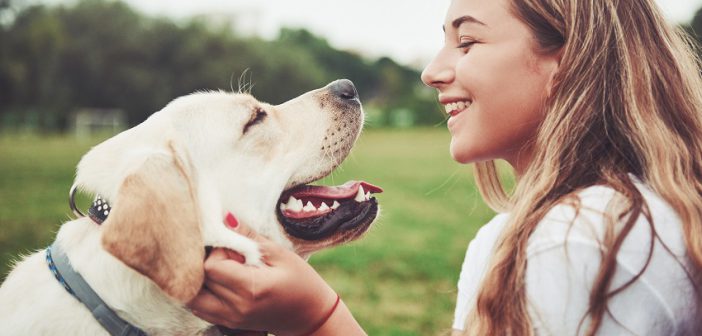Every pet owner has unconditional love for their pet. Be it a cat, a dog, or any other domestic pet that you have, you want to provide them with the best life you can. They are not just animals for you; they are your family members, and just like any member of your family, they need you to be there for them when they are unwell or have suffered from an injury. But unlike humans who can speak and express their problems, your furry friends can’t. Therefore, you need to be extra careful and observant regarding their health. So, you need to be alert if you notice any unusual behavior in your pet and seek help from an urgent vet in Southlake, TX.
In this article, you will read about common signs and issues indicating anything wrong with your pet’s health. So, without further ado, let’s get started.
Common Signs of Illness and Discomfort in Pets
-
Changes in Drinking and Eating Habits
One of the easiest ways to check that your pet is under the weather or facing discomfort is to monitor its drinking and eating habits. If you notice a loss of appetite or unusual thrust in your pets, these are signs that they are not okay. Loss of appetite can indicate kidney disease, gastrointestinal issues, or even dental problems. Increased water consumption can indicate problems like urinary tract infections and diabetes.
-
Lethargy and increased Fatigue
Each pet is different from others and so are their energy levels. You know how your pet operates, their sleeping and playing times, or even how they react and greet people. But if you see a sudden change in their patterns, you must keep them under your observation. If you see your pet dog/cat sleeping for prolonged hours, then this could be a sign of discomfort or illness.
On another note, if your active pet dog or cat shows no interest in playing or greeting you when you return from work, you must note this, as it can indicate minor infections as well as serious heart conditions. Keep observing it for a few days and consult your vet immediately if it continues.
-
Difficulty in Breathing, Persistent Coughing & Sneezing
As pet parents, you should always monitor respiratory issues in your furry friend. Consistent coughing, sneezing, or difficulty breathing can indicate respiratory infection, disorder or even bigger conditions like poor heart health. If your pet is coughing too much or has trouble breathing, it is important to take them for an urgent checkup at UrgentVet in your neighborhood. Keep an eye out for additional symptoms like nasal discharge and wheezing.
-
Change in Skin Condition and Coat
A healthy and happy pet always has a shining coat with less hair shedding. But all of a sudden, if you notice any signs of baldness, redness, dry skin, or excessive hair shedding, it can indicate any underlying illness your pet might be going through. For example, cats are prone to stress-related grooming behaviors that can lead to excessive hair loss.
-
Poor Digestion or Digestive Upsets
Cats and dogs can occasionally suffer from diarrhea or vomiting, as they can suffer from indigestion. But if you notice persistent signs of vomiting or diarrhea, then it is concerning. Such signs indicate any gastrointestinal issues or food intolerance concerns. If your pet experiences repeated episodes of vomiting, it can lead to dehydration and can be combined with other severe symptoms. In such a situation, do not wait for too long; get in touch with the vet immediately and seek help to deal with the condition.
-
Unexplained Weight Gain and Weight Loss
If your pet has gained or lost weight without any change in its diet or activity levels, then it is concerning. Sudden weight loss can indicate any metabolic disorder, such as hyperthyroidism or diabetes. On the other hand, sudden weight gain can indicate a hormonal imbalance or other issues related to the kidney.
Any pet dog or cat shouldn’t be below or above its average weight. A large breed dog, such as a golden retriever, should have an average weight of 70.548 lbs. Similarly, for cats, the ideal weight is between 8 and 12 pounds. Multiple factors affect an animal’s weight, but just be watchful and notice any unusual signs.
Now that you have understood some of the conditions that can indicate that your pet is in discomfort, you know that it is important to seek help from an experienced vet and provide them comfort at the earliest possible. Having an emergency vet to consult at the time is a necessity as it is about your furry friend’s safety and life. So, also keep information about them handy so that you don’t have to struggle when in need. Also, do everything to provide your pet a healthy and active lifestyle so they can live a long and fulfilling life.





A virtual-corporate-magician offers a unique and engaging way to elevate team events, conferences, and corporate meetings. These online performers bring magic into the digital space, creating a memorable experience for remote teams. Through interactive performances, virtual magicians blend illusion, humor, and audience participation to create an atmosphere of wonder and excitement. Companies seeking to boost morale or enhance their virtual events can benefit from the magic of these online entertainers. For a captivating experience, check out https://magicalkatrina.com/virtual-corporate-magician where magical entertainment meets the corporate world, offering an unforgettable online experience.
I’ve been into online casinos for a while, but I wanted to try something new. I found Yabby Casino, and it’s been worth it. The site is user-friendly, with plenty of games and good payouts. They offer amazing bonuses tailored for Canadian players, including free spins and cashback rewards. The CAD deposit option is super convenient, and I like that they offer quick withdrawals too. It’s definitely worth checking out.
Every time I log in to Quatro Casino, I know I’m in for a treat. The variety of games is just perfect—whether you’re into slots, roulette, or poker, there’s something for every taste. CA The security measures are great, so I feel safe while playing. The mobile experience is smooth too, so I can enjoy the fun wherever I go. Highly recommend it to anyone looking for a trustworthy platform with amazing gameplay!
Unique gifting is an art that goes beyond traditional presents, focusing on thoughtfulness and personalization. It involves choosing items or experiences that reflect the recipient’s personality, interests, or aspirations, making the gesture truly memorable. Unlike conventional gifts, unique gifting can include handmade crafts, custom-designed items, or experiences like a cooking class or a weekend getaway. This approach emphasizes the value of effort and creativity, showing the recipient they are deeply appreciated. Whether it’s a tailored book collection or a personalized piece of art, unique gifting transforms ordinary moments into extraordinary ones, leaving a lasting impression of thoughtfulness and care.
This was a nice blog. I have gone through all the websites and posted the comment which matches my niche My Centura Healths